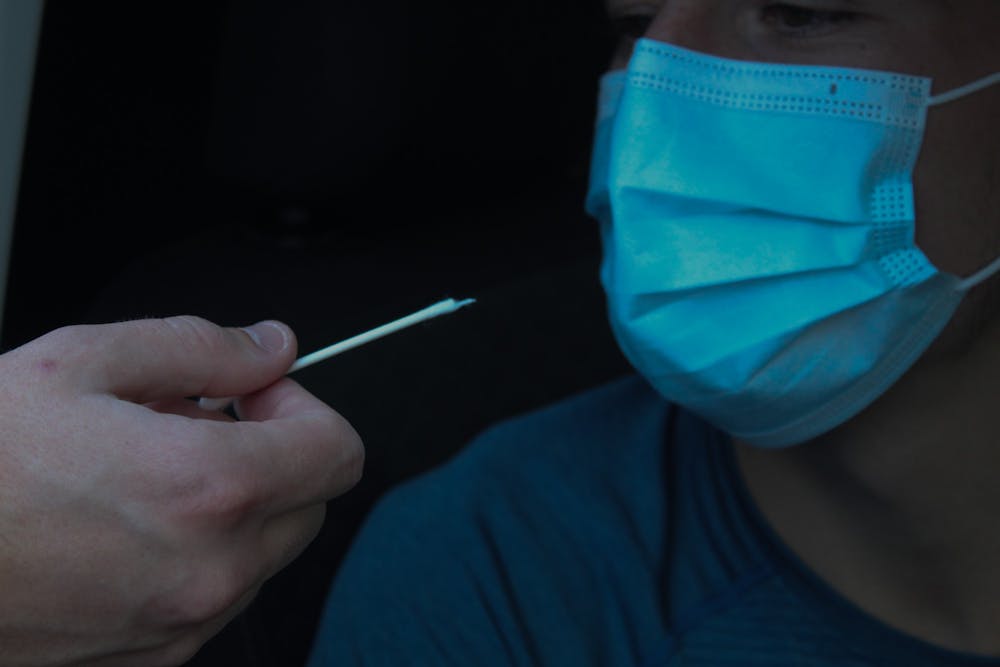The response team consists of whomever is on staff at Campus Health when a cluster is announced. Pittman said that no specific clinical competency is required of members.
“Everyone in Campus Health for the past year has been on standby, so typically we are able to very quickly pull together a team to be able to go on site,” Pittman said.
The tests at pop-up sites are the same self-administered tests used at the Carolina Together Testing Program sites where students on campus are required to test at least twice a week. Unlike regular testing, the results from testing at the cluster response location typically come back in 24-36 hours, Pittman said.
Pittman said in addition to students, staff members who work in a cluster location can also get tested if they choose.
The pop-up testing locations in response to the first three campus clusters found only one positive result, but Pittman said that without the cluster response, that positive may not have been captured.
While students who test at the pop-up cluster response locations wait for their results, Carolina Housing tells them to stay-in-place until they receive a negative result.
The students who test positive begin the isolation process and work with UNC’s contact tracing team.
COVID-19-positive students, the vast majority of whom have minor to no symptoms, receive regular emails from Campus Health on how to watch for certain symptoms, Pittman said. However, students who have moderate to severe symptoms get daily calls from Campus Health.
Katie Noble, a first-year living in Morrison, said she feels better about her safety this semester than in the fall because of the University’s current testing procedures.
“I’m very glad to be here on campus, and I’m doing all that I can to stay safe,” she said.
Noble, who lived on campus for a few weeks in the fall, was sent home when classes went online last fall. When she found out about the cluster in her dorm, she said she was initially worried that she may have to move off campus again.
Noble was required to get tested at the pop-up site last Tuesday as a part of the cluster response, and said that the process was really quick and convenient.
To get the day's news and headlines in your inbox each morning, sign up for our email newsletters.
Moving forward, Noble said she is going to take extra precautions – more hand-sanitizing, wiping door handles and elevator buttons – but the thought of another cluster looms.
“I’m still a little bit worried because it happened once, and I’m worried it will happen again,” she said.
Professor of epidemiology at the UNC Gillings School of Global Public Health Audrey Pettifor wrote in an email that she is concerned about community mental health because of the toll social isolation and fear is taking on everyone.
With in-person classes starting this week, Pettifor said that data suggests in-person classes vs. remote are not associated with infection.
“I am not terribly worried about in-person classes increasing transmission, but we need to monitor it and see how cases look over the next few weeks. The biggest risk is socializing off campus,” Pettifor said.
She said with the new, more infectious variants spreading, people need to be vigilant about proper masking – wearing KN95, double masking, making sure masks fit well.
“Everyone is tired, but the light is at the end of the tunnel,” Pettifor said.
Following safe socializing guidelines, Pettifor said, is a way to be part of the solution.
“In the meantime, remember that testing negative for COVID is not a green light to socialize mask-free," she said.
Staff writer Charlotte Geier contributed to this report.
university@dailytarheel.com



